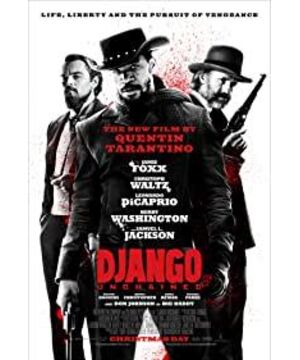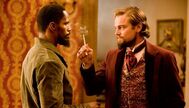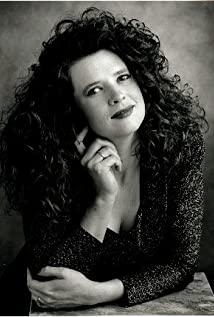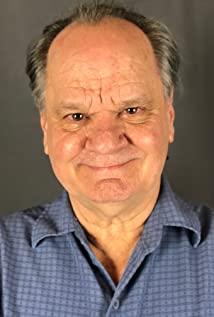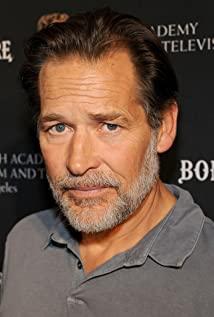Will Smith turned down the role of Django. This information, which I only learned recently, is like lifting the lid of Pandora's box. The dashed and solid lines of the script are mixed with Director Kun's personal emotions, which are somewhat horrifying.
Racism is an extremely sensitive topic in today's American society. Whenever there is a case involving racial discrimination, the public figures of American imperialism will make a noise in the public opinion field, and they all know what to say. "Django Unchained" can also be considered a speech by Director Kun, of course, a Quentin-style speech.
On the surface, "Django Unchained" is an anti-racist movie based on the conflict between black slaves and whites in the context of the Civil War. Z kills the farmer Candy and sacrifices. But in fact, the film is not an anti-racist film, even to a certain extent, it is a racist film. At least that's what the judges of Quentin, DiCaprio and the Oscars should think.
The script of "Django Unchained" was written by Quentin himself. DiCaprio, who has never won a statuette, is willing to take a 10% discount to play the second supporting actor in this film, which is enough to show that the script is very attractive. It's human, and Will Smith, who has many years of film experience, can't see that the script can make a good movie. The agent also urged him to accept the role of Django, but Will Smith still refused. Why refuse? I think there are three reasons. First, he saw that the protagonist of the film was not Django, but the doctor Schultz, who was a supporting role. Second, he did not want to be directed by the director to act like a "black slave". In fact, Django, who doesn't need much acting skills; third, he also feels that the film contains racism.
The English name of the movie is "Django Unchained", and one of the endings in the movie is exactly the same. After Django kills the enemy and blows up the castle, he and Bron Shida fly away. The "ending" outside the movie is a continuation of the ending of the movie itself. After the emancipation movement of black slaves, blacks (Django Unchained) have gained freedom and the same rights as whites, but the reality is that blacks often become the protagonists of crimes, and the black group constitutes Unrest in American society. In this way, it is dark humor to think that Django Unchained is an anti-racist film.
What is the real ending in Django Unchained? I think the connotation of the film that Director Kun wanted to express has come to an end after Dr. Schultz is killed, and the film will end without the protagonist. As the protagonist of the dotted line, the wise and brave Dr. Schultz is the embodiment of idealism, who believes that blacks and whites should be equal; the supporting character of the dotted line is the equally wise and brave Candy farmer, who is the embodiment of realism , when the distance between ideal and reality does exist and conflicts bring trouble, bang two shots, Quentin Tarantino kills the roles of Candy and Schultz, and kills pure idealism And pure realism, also temporarily get rid of troubles.
This is what Quentin Tarantino said about racism, a dark humor.
Quentin won the Oscar for best screenplay; Waltz, who played Dr. Schultz, who carried the most will of Kun's director in the script, won the best supporting actor; Xiao Li, who received a salary of one million, performed true and false values , I really experienced the excitement of acting again; Jamie Foxx, who only needs to perform the superficial joys and sorrows effortlessly, will gain both fame and fortune. For him, being a "slave" in the movie is a matter of indifference.
Life is like a play. Some people throw away their personalities for fame and fortune and perform hard, some people regard money as dung and pursue the stimulation brought by challenging themselves. They are the majority of us; we occasionally encounter idealism that is broken Those who walk on the edge of ideal and reality, such as Kun Dao arrogant and crazy.
Between the reality and reality of "Django Unchained", among the majority and the minority, I prefer Will Smith, an actor who only wants to be his protagonist.
Finally, it is necessary to skillfully make a five-hair summary. Quentin Tarantino's superposition-style expression of values and the black violent scenes in the films make his films really unsuitable for showing on the mainland. Even in the loose cultural context of the United States, his style belongs to the slant of the sword. This is also the reason why the State Administration of Radio, Film and Television has always disliked Director Kun and his dark humor.
View more about Django Unchained reviews


